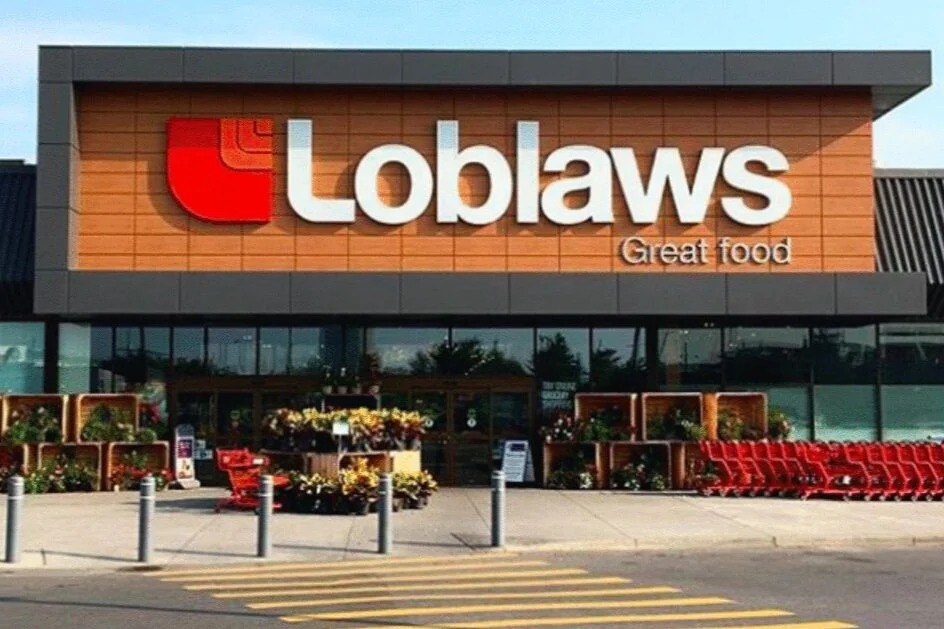Canadian Retail and Technology: A Perfect Pair or Doomed to Fail?
/photo: george minakakis
By George Minakakis
Technology has had a long relationship with retailing in Canada as well as globally. It has traditionally been a tool to improve data collection and productivity. However, in the last decade it has both increased competition and become an internal transformational juggernaut to stay competitive.
All physical retail is being forced in some way to adapt to the changing technology preferences and shopping behaviours of consumers, while also combating e-commerce players who are picking away at their market share. Keeping up requires marathon skills, a great deal of financial resources, and capable talent. While some brick and mortar retailers are thriving and making money, many have been disabled by their lack of resources, the wrong strategic choices, or poor timing.
The launch of smartphones in 2007, compounded by the financial crash and followed by the Great Recession, created a pivotal moment in retail industry. Ever since, this industry has been going through a major transformation, and retailers are dropping like flies along the way.
Today’s newswires are calling for the closure of another 8,000 stores in the United States in 2019. Last week, Forever21, announced the closure of all of its 44 locations in Canada. Interestingly enough, store closures in North America are higher than stores openings. When foreign retailers close their doors in Canada, it’s quite often a result of what is happening in the US. However, as businesses are also being acquired (Toys R Us Canada by Fairfax and PartyCity by Canadian Tire), investment and consolidation is something we will likely see more of. All of these acquisitions are in need of fresh perspective and sound financial backing.
If many of these retailers were early adopters of e-commerce and technology could they have been saved or in a better market position?
photo: youtube
Consumers are driving technological change
Most retailers have invested in the typical nuances of technology, such as an online platform, chatbots, and mobile payments. Some are investing in AI, Robotics, and the list goes on to augmented and virtual reality being other potential technology driven solutions to sustain customers and drive sales growth. The next evolution will be how IOT impacts the future of appliances and other everyday products. The expectations that will be set by consumers around connectivity will be a much higher when it comes to reliability, performance, warranties, and service. This promises to further complicate retailing as we know it. It seems that retailing has become a digital experiment with no real understanding of how it will sustain a brand’s relevance in the marketplace with longevity.
photo: tnw
For brick and mortar retailers, creating a high-tech element as part of the customer experience has become the norm. However, if the intent is to turn a store into no more than a Universal Studios Attraction, retailers run the risk of creating a single event experience with a limited run and no follow up shows. The cost of such a retail performance will be impossible for many retailers, and staying relevant will become even harder. Technology proposes a lot of hope, but these consumer-driven technological advances mean higher costs and a more complex customer experience that is not sustainable. Lack of foot traffic and the negative reviews are inevitable.
Technology can’t save outdated retail models
Not all technology initiatives are viable for every retailer. In 2017, Payless Shoes announced the “acceleration and expansion of its e-commerce business.” The retailer subsequently announced the closing of all of its North American stores after what management said was intense competition with the likes of Amazon and Walmart. Even Sears Canada, before it shuttered its doors in early 2018, had previously announced investments in stores and technology.
Technology can’t fix stodgy and outdated business and consumer models without radical change. Leaders must be faster at rolling out relevant innovation, redefining service behaviours, building entrepreneurial cultures, and recruiting talent with the skillset to continuously rethink and rebuild the brand.
Technology should never get in the way of customer relationships
No one was prepared for technology to transform consumer behaviours so profoundly. The coveted customer experience that everyone is pursuing today lacks depth, and most of the ideas are easy to copy and reproduce elsewhere. This is because technology alone doesn’t work when it is leading the vision. Instead it should be one aspect of the brand’s vision. The overall customer experience includes people in the equation to help build trust.
Consumer trust is something that is established by a repetitive and reliable in-store or online behaviour. It isn’t just important for the consumer, it is also important to the organization to continuously adapt and grow. A reliable customer experience – with whatever level of integrated technology – will only be as good as the staff that work in the store and their ability to use that technology to enhance their knowledge.
It remains to be seen whether or not any retailer can really merge technology and their physical retail space into one continuous evolving experience, while still managing to alter that experience frequently enough to make a difference. If retailers wish to survive, they need to decide whether technology is their new retail platform or if it remains a competitive threat. Either way, this period of disruption is far from over.
George Minakakis is the CEO of Inception Retail Group and author of The Great Transition: The Emergence of Unconventional Leadership. He is an expert at guiding retailers through competitive transitions, leading change management initiatives, and helping to build leadership teams to future-proof lasting success. As a retail realist, he takes a unique and unvarnished view of the retail space. With over three decades of experience in the retail industry, George has managed both luxury and mainstream lifestyle brands nationally and internationally. A retail sector leader, he continues to work within the retail sector as an advisor to Private Equity Firms, CEO partner, keynote speaker, and consultant for unique, privately held brands. Email: gminakakis@inceptionretailgroup.com












![L.L.Bean Continues Canadian Expansion with 1st Toronto Store [Photos]](https://images.squarespace-cdn.com/content/v1/529fc0c0e4b088b079c3fb6d/1603908990197-KDT3UNTEHFBFJF5FJ36N/L.L.Bean_Don_Mills_8.jpg)



![Retail-insider-NRIG-banner-300-x-300-V01-3[2].jpg](https://images.squarespace-cdn.com/content/v1/529fc0c0e4b088b079c3fb6d/1593476525034-QRWBY8JUPUYFUKJD2X9Z/Retail-insider-NRIG-banner-300-x-300-V01-3%5B2%5D.jpg)
![Retail-insider-NRIG-banner-300-x-300-V01-2[2].jpg](https://images.squarespace-cdn.com/content/v1/529fc0c0e4b088b079c3fb6d/1593476491497-W6OZKVGCJATXESC9EZ0O/Retail-insider-NRIG-banner-300-x-300-V01-2%5B2%5D.jpg)
![Retail-insider-NRIG-banner-300-x-300-V01-4[2].jpg](https://images.squarespace-cdn.com/content/v1/529fc0c0e4b088b079c3fb6d/1593476508900-TJG5SNQ294YNOCK6X8OW/Retail-insider-NRIG-banner-300-x-300-V01-4%5B2%5D.jpg)